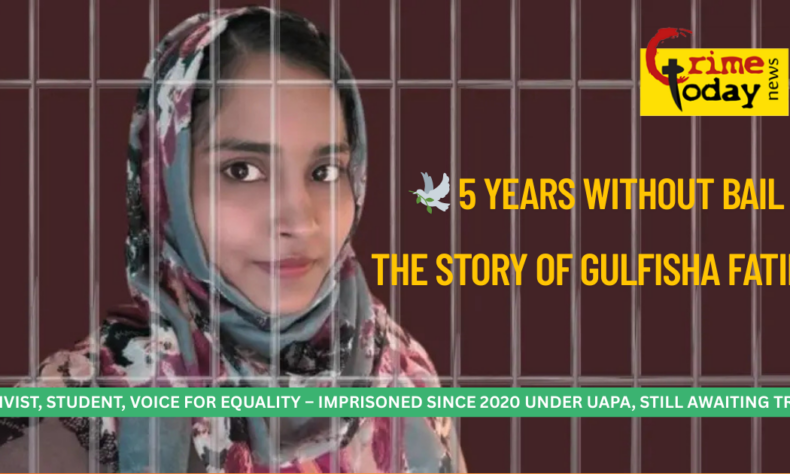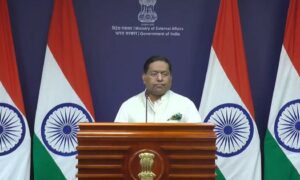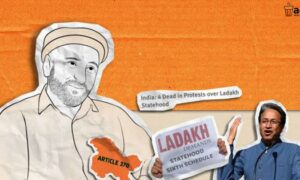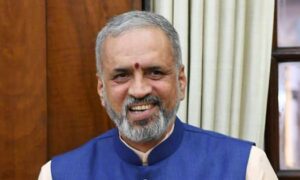
Activist Gulfisha Fatima
Marks Five Years in Jail Without Bail or Trial
By Naveed Uddin Khan Uzair
Gulfisha Fatima, a 31-year-old student activist and MBA graduate, has now spent over five years in Delhi’s Tihar Jail without bail or trial. Arrested in April 2020 under the Unlawful Activities (Prevention) Act (UAPA), she is accused in the controversial FIR 59/2020 case, which alleges a conspiracy behind the February 2020 Northeast Delhi riots.
Early Life and Activism
Born in 1993 in Delhi, Gulfisha pursued Urdu Honours at Kirori Mal College, Delhi University, and later completed her MBA from the Institute of Management Education in Ghaziabad. Before her arrest, she was actively involved in community work, teaching women and children at Shaheen Bagh and participating in peaceful protests against the Citizenship Amendment Act (CAA) in Seelampur. Her activism was rooted in advocating for religious freedom and secularism.
Arrest and Charges
On April 9, 2020, Gulfisha was arrested and charged under multiple sections of the Indian Penal Code and the UAPA, including allegations of rioting, conspiracy, and promoting enmity between different groups. Despite being granted bail in some cases, she remains incarcerated due to the charges under FIR 59/2020. The Delhi Police have labeled the riots as a “well-planned conspiracy,” opposing bail for Gulfisha and other activists, citing the severity of the violence that resulted in 53 deaths and significant property damage.
Legal Proceedings and Bail Denials
Gulfisha’s bail plea has faced numerous delays. Her initial bail application was rejected by a lower court in March 2022. Subsequently, she approached the Delhi High Court, where her plea has been pending since May 2022. In November 2024, the Supreme Court declined to entertain her bail plea under Article 32, directing the High Court to consider her application. Despite these efforts, her bail plea remains unresolved, and she continues to be held without trial.
Human Rights Concerns
International human rights organizations have criticized Gulfisha’s prolonged detention. In June 2020, United Nations experts called for her release, stating that the arrests of activists like Gulfisha appear to be “clearly designed to send a chilling message that criticism of government policies will not be tolerated.” The United States Commission on International Religious Freedom has also highlighted her case, emphasizing concerns over religious freedom and the treatment of activists in India.
Personal Impact and Family’s Struggle
Gulfisha’s family describes her as a resilient and compassionate individual. During her incarceration, she has been known to write letters, poems, and create paintings, sharing them with her family. However, in recent times, these communications have ceased, adding to her family’s distress. Her mother continues to advocate for her release, expressing unwavering belief in her daughter’s innocence and the hope that justice will prevail.
Gulfisha Fathima Parents

Broader Implications
Gulfisha’s case is emblematic of the broader concerns regarding the use of the UAPA and the treatment of activists in India. Legal experts and human rights advocates argue that the prolonged detention without trial undermines the principles of justice and due process. The delays in her legal proceedings raise questions about the efficiency and impartiality of the judicial system in handling cases involving dissent and political activism.
Conclusion
As Gulfisha Fatima marks five years in incarceration without bail or trial, her case continues to draw national and international attention. It underscores the urgent need for judicial reforms and the protection of civil liberties in India. The resolution of her case will not only impact her life but also set a precedent for how the Indian legal system addresses cases involving activism and dissent.






